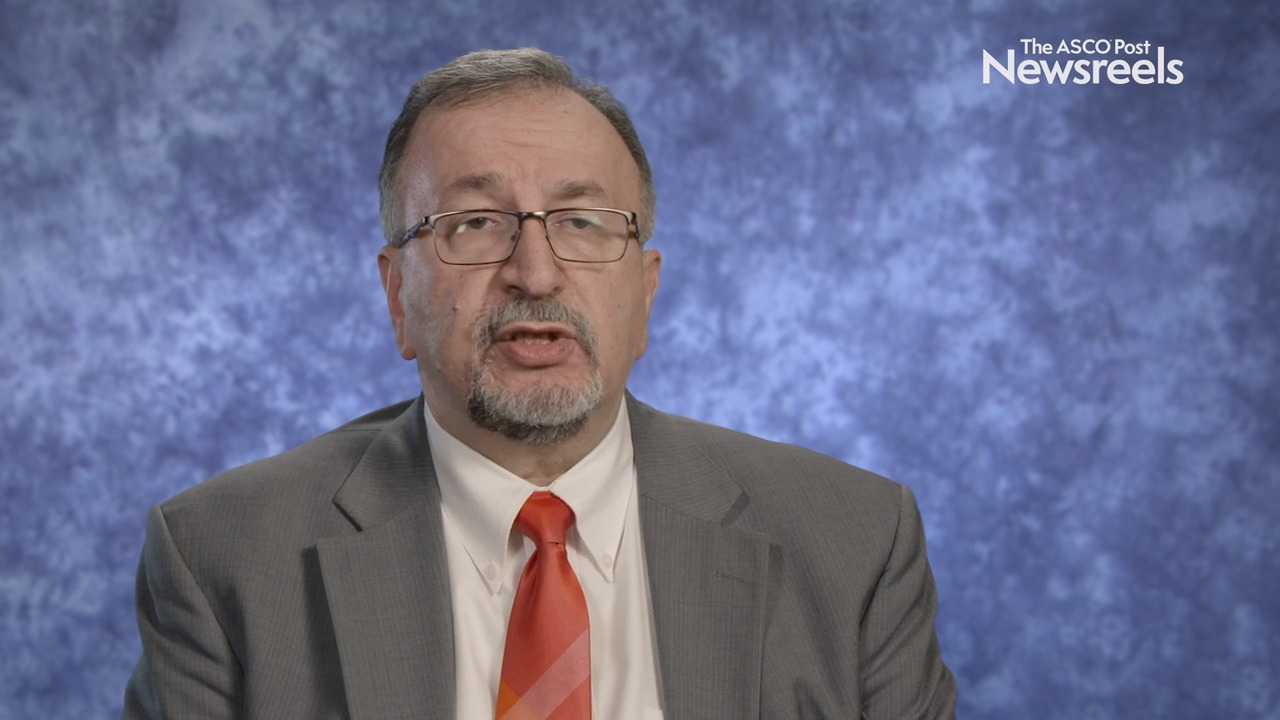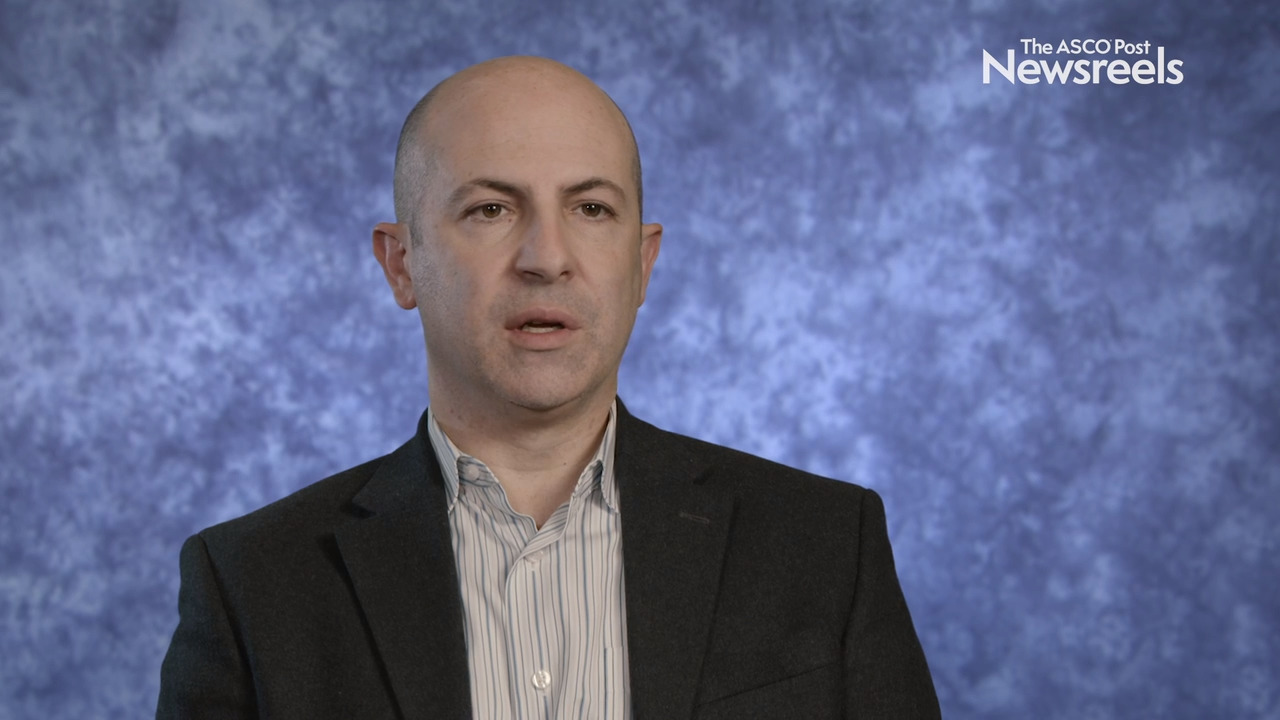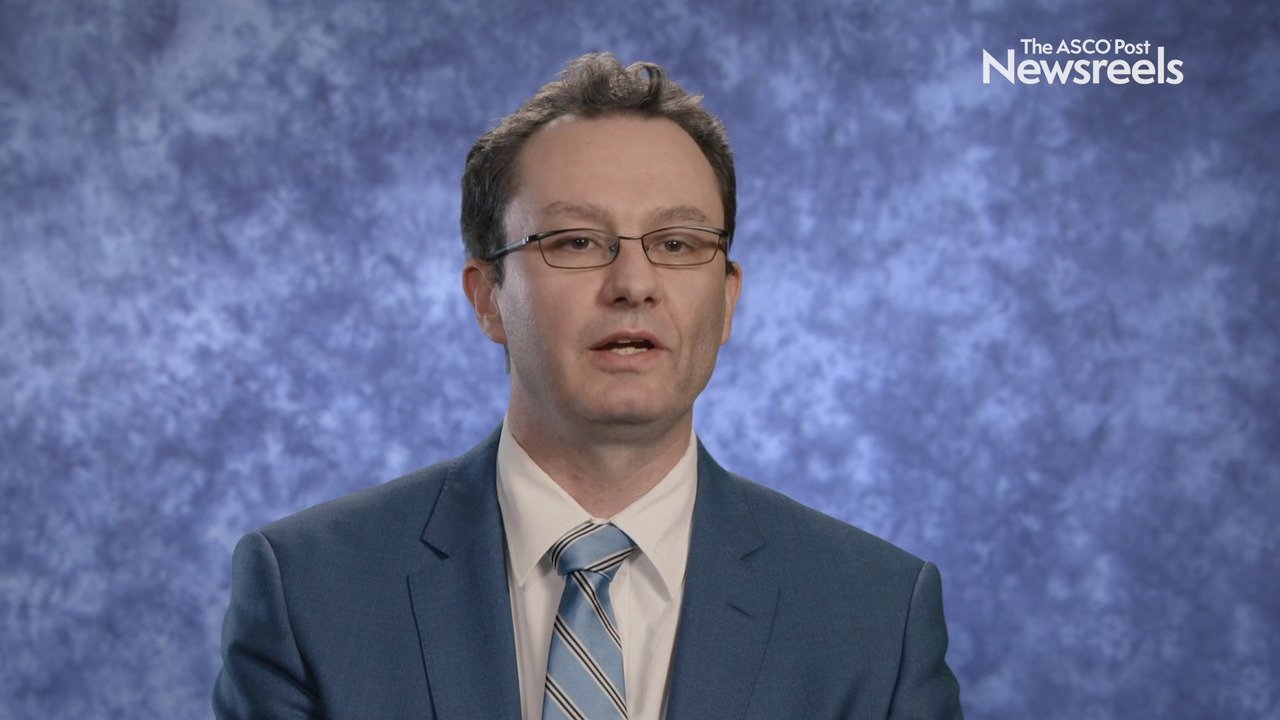Van K. Morris, MD, on Stage II Colon Cancer: Circulating Tumor DNA as a Predictive Biomarker in Adjuvant Chemotherapy
2020 Gastrointestinal Cancers Symposium
Van K. Morris, MD, of The University of Texas MD Anderson Cancer Center, discusses the COBRA study, which is examining circulating tumor DNA and its ability to predict whether patients with resected stage IIA colon cancer may benefit from adjuvant chemotherapy (Abstract TPS261).
Eyal Meiri, MD, of the Cancer Treatment Centers of America at Southeastern Regional Medical Center, discusses his findings on heavily pretreated patients with colorectal cancer with high tumor mutational burden. Monotherapy with pembrolizumab showed antitumor activity, which merits further study to confirm efficacy (Abstract 133).
Zev A. Wainberg, MD, of the UCLA Medical Center, discusses the first subset analysis of how a combined positive score in gastric and gastroesophageal junction cancers related to the efficacy of pembrolizumab in PD-L1–positive disease (Abstract 427).
Thibaud Kössler, MD, PhD, of Geneva University Hospital, discusses the first trial to study the efficacy and safety of anti–PD-1 immunotherapy plus short-course radiotherapy in localized microsatellite-stable rectal cancer. The study explores whether a gene signature can predict sensitivity to immunotherapy (Abstract TPS272).
Peter R. Galle, MD, of the University Medical Center, Mainz, discusses patient-reported outcomes from this phase III study, which showed the combination of atezolizumab plus bevacizumab vs sorafenib is well tolerated and may represent a new standard of care in the first-line setting for unresectable liver cancer (Abstract 476).
Scott Kopetz, MD, PhD, of The University of Texas MD Anderson Cancer Center, discusses phase III findings from the BEACON CRC trial, which had demonstrated that the triplet regimen of encorafenib, cetuximab, and binimetinib significantly improved overall survival in patients with a BRAF V600E mutation. The new analysis showed that the regimen also led to substantial improvement in patient-reported quality of life compared with current standard of care (Abstract 8).





